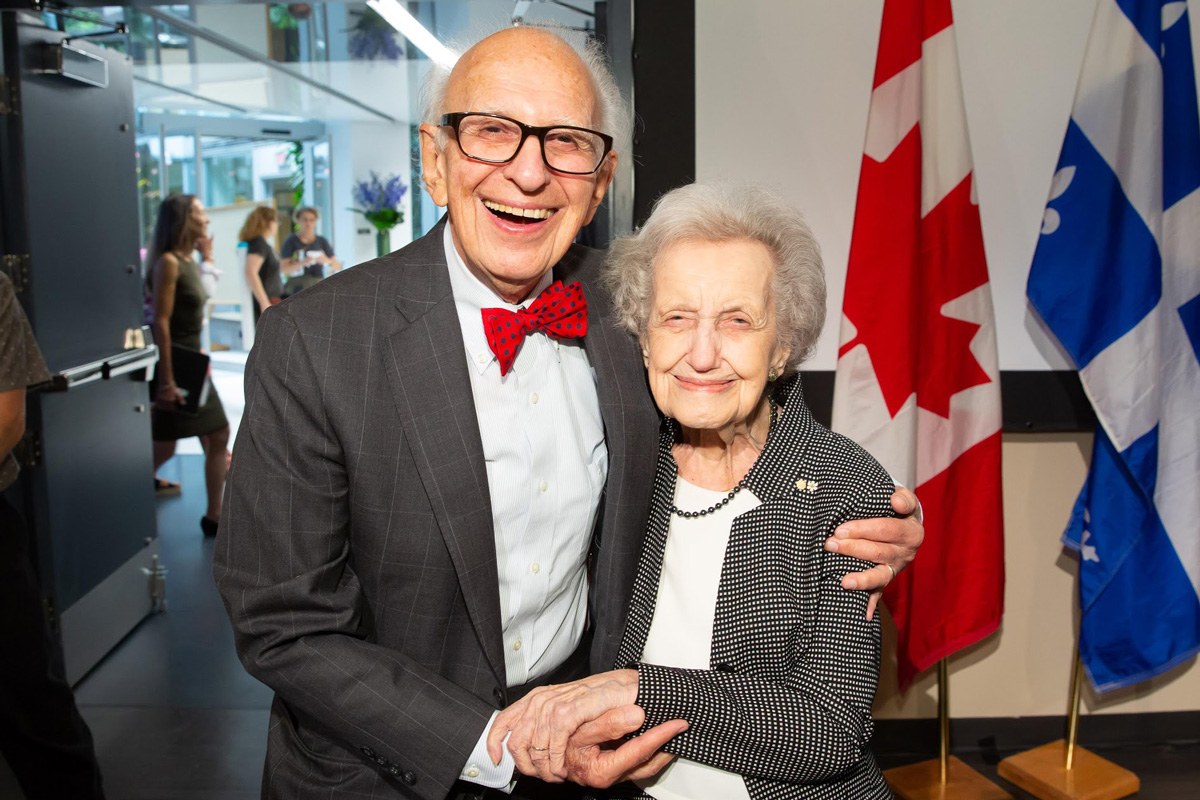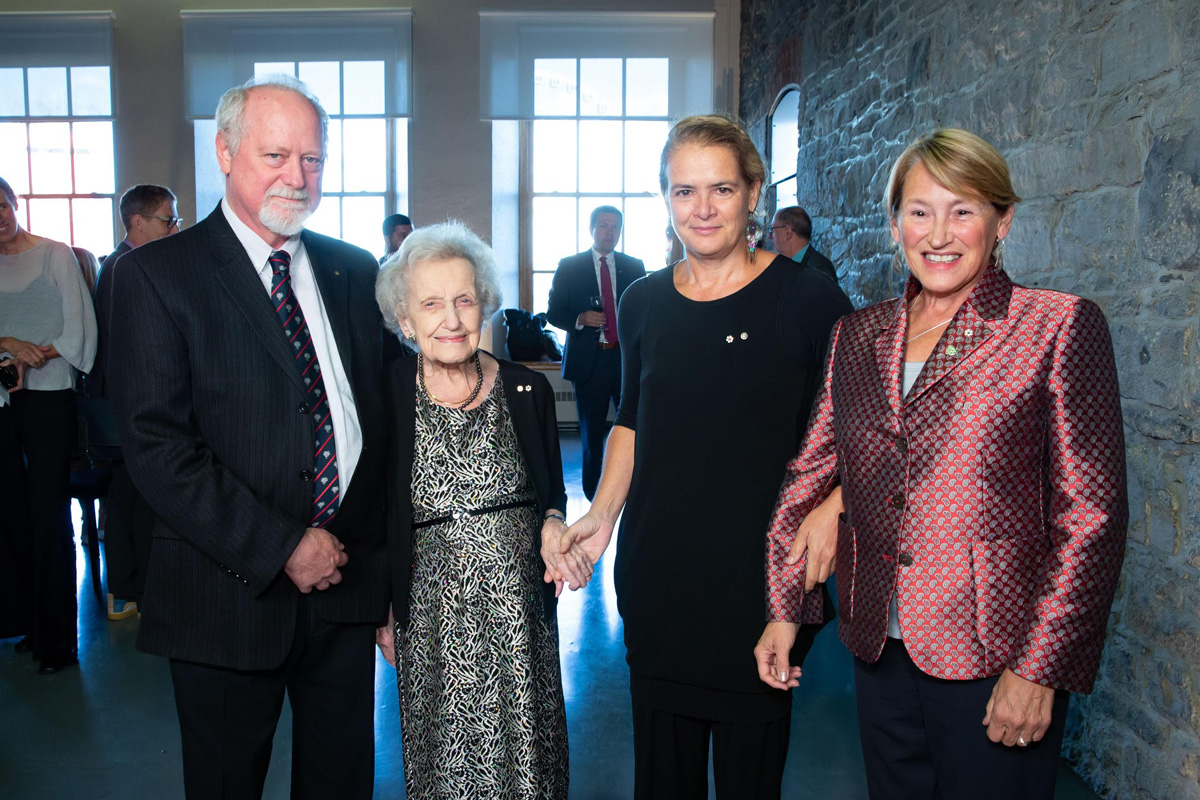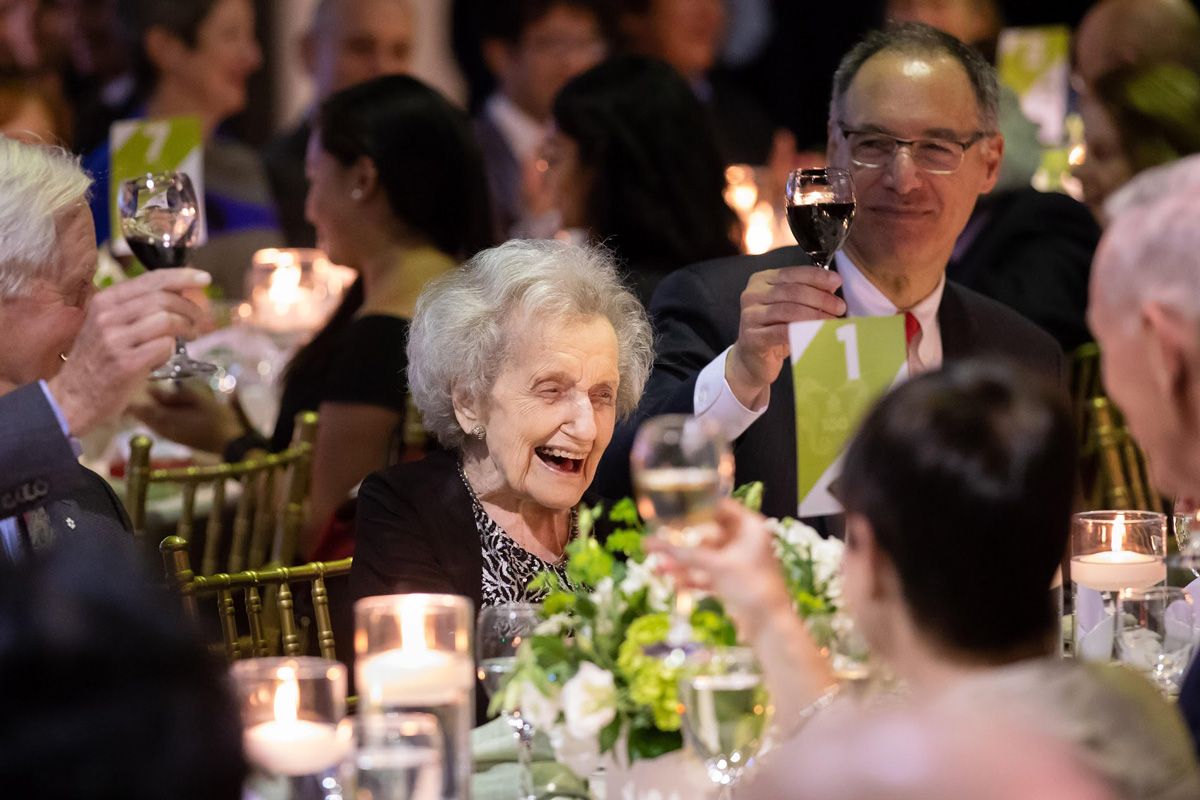
Hundreds of people from all over the world – including Nobel Prize laureate Eric Kandel and Her Excellency the Right Honourable Julie Payette, Governor General of Canada – came to celebrate the extraordinary life and career of Brenda Milner on Sept. 6–7. The Brenda Milner Centennial Symposium was hosted by the Montreal Neurological Institute and Hospital (The Neuro) to honour the iconic Milner, Canada’s pre-eminent neuropsychologist, and a pioneer in brain research. Milner, who celebrated her 100th birthday on July 15, is considered one of the founders of neuropsychology.
The amphitheatre at The Neuro was at full capacity with 340 people, and another 100 or so in the overflow room for the Brenda Milner Centennial Symposium.
Milner is a legend in the world of neuroscience, and her legacy was the subject of the Centennial Symposium in her honour on September 6 and 7. Milner’s former graduate students and neuroscientists from around the world packed the lobby and amphitheatre.

Organizer of the Symposium, Dr. Gabriel Leonard is a clinical scientist and coordinates the neuropsychology outpatient service. He thanked Milner for adding the “technicolour” to his life.
“I came to Montreal in 1972, and asked Brenda if I could replace a classmate from University College Dublin who was returning to Dublin,” said Dr, Leonard. “She hired me, and I am still here – 44 years on. Over the years I have become close to Brenda, and consider her one of my best friends. Because of her I have been all over the world, including Oslo, when she received the Kavli Prize.”
Dr. Lesley Fellows served as master-of-ceremonies. She described the Symposium as the main scientific event of Milner’s 100th year.
“This is when we celebrate the science Dr. Milner has inspired, a bit like an orchestra performs a concert to honour a famous conductor,” she said. “We are hearing about virtuoso science done by cutting-edge researchers who have a personal or scientific link to Dr. Milner.”
Milner changed the course of brain science in the 1950s when she determined that there are multiple forms of memory, and that these rely on specific regions in the brain. She did that through her studies of patients, including Henry Molaison (HM). HM had an operation to relieve severe epileptic seizures. The surgeon removed parts of his temporal lobes and his seizures subsided. But HM developed severe amnesia. Milner discovered that HM could learn new motor skills, even if he never remembered her name. Her research revolutionized the understanding of the brain structures involved in learning, memory and language functions.
Milner’s career spans more than 70 years-60 of them at McGill and The Neuro as Director of the Neuropsychology Laboratory and a member of the Department of Neurology and Neurosurgery. This work formed the foundation of modern cognitive neuroscience and set the direction of work being done by hundreds of researchers around the world.
Some of that cutting-edge work was on display during presentations, poster abstracts and interactive sessions for and with trainees. A large-scale portrait and a sculpture of Milner were also unveiled.

Twenty two of her former students, some of her multi-generational ‘scientific offspring,’ gave short speeches about her impact on them. They, and many others form “Milner’s troops,” a term Milner gave them, hearkening back to her own student days in Cambridge during World War II. Milner occupied centre seat in the front row of the amphitheatre, listening attentively, nodding, often smiling and making occasional comments.
Several speakers referred to Milner’s messy office piled high with papers and journals. All referred to her exacting writing standards, and to her hospitable and sociable nature. They referred to her as a mentor, a great teacher, an inspiration and a friend.
“I had the great honour of being Brenda’s last grad student,” said Joëlle Crane, Milner’s 17th and last PhD student in the early 1990s. “The group Brenda ran was amazing, and The Neuro was, and is, an amazing place. Milner was the raison d’être and glue that holds it all together.”
Meera Paleja was the most recent of Milner’s post-doctoral trainees. “I am the baby sister, I guess,” she said smiling. “Dr. Milner, because I can only call her Dr. Milner, posted an online ad seeking post-docs to do research. I applied, not expecting to hear back. When Dr. Milner called the lab and left a message with my lab partner he couldn’t believe it was actually her and was convinced it was a prank.”
Fellows says they are already thinking ahead to the next Milner Symposium in 2023.
Watch videos from year’s Symposium

Fascinating to read these accounts of the remarkable Brenda Milner. My father Herbert Jasper knew her well, and I can remember meeting her several times when I was growing up in Montreal
Problem is they keep celebrating only in Canada, but really few recognize her outside of Canada and even fewer appreciate what she has done. That is why she has never been seriously considered and never won the Nobel Prize in physiology, which people in Canada have been endlessly rooting for on her behalf. Really sad, Brenda!